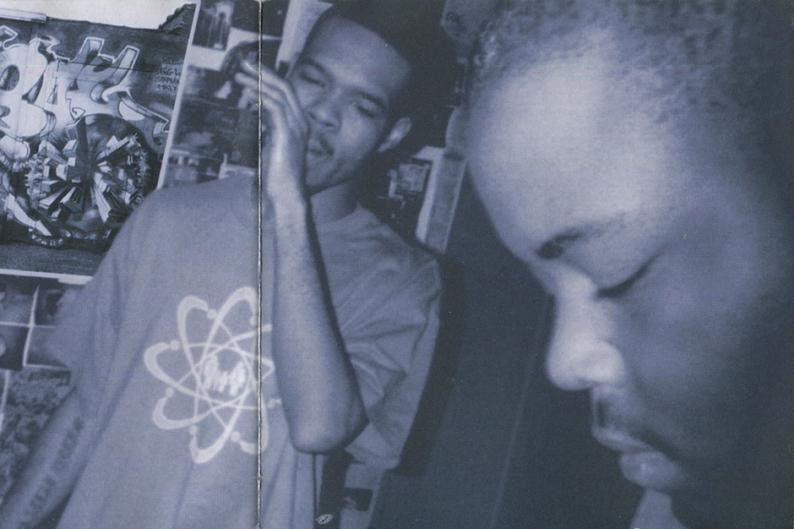In Case You Missed It is Impact’s series about artists who never made it into a very bright spotlight, but heavily influenced their respective genres and fans.
If you were to write up a list of the best rap albums of the 2000s, you’d most likely put down The Blueprint, The Marshall Mathers LP, Stankonia, or The College Dropout. These are all rightly hailed as essential classics and remain popular to this day. However, Cannibal Ox’s The Cold Vein probably does not pop into your mind as quickly.
This is understandable: Cannibal Ox was never signed to a major label, The Cold Vein was not a huge seller, and the group did not release another album for more than a decade. As a result, the group and their work are often overlooked. Now, The Cold Vein is considered an underground classic, influential in its unorthodox production, lyrical prowess, and unflinchingly dark view of New York. While it may never gain the extreme popularity of other albums of its era, its place in rap history is essential.
Cannibal Ox consists of Vast Aire and Vordul Mega, two rappers who were members of the Atoms Family collective. This group was formed in the mid-1990s by aspiring New York rappers who battle-rapped in train stations under the city. Vast and Vordul befriended each other through these encounters, forming their duo in the process.
After they established themselves as Cannibal Ox, a third piece of the puzzle fell into place: Jaime Meline, also known as El-P, star rapducer. At the time, El-P was already a veteran of the indie hip-hop scene. His group, Company Flow, had just released their first record through the newly-formed indie label, Rawkus Records. After a falling out with the label, El-P left Rawkus and started his own label called Def Jux. As El-P went on to look for new collaborators, he ran into the Atoms Family Collective, where he then met Cannibal Ox. The three found inspiration in their shared creative hunger and decided to make music together. A full-length album was then put in the works, with Cannibal Ox dominating as lead MCs while El-P controlled the boards. The subject of the project was New York, viewed at a vantage point from the streets and sewers as opposed to the penthouses. Instead of the lavish lifestyle celebrated by Biggie Smalls, it would be more akin to the street-life stories told in Nas’ Illmatic.
In fact, the stories told in The Cold Vein are even darker. El-P’s production provides the setting: a claustrophobic backdrop of absolute madness, complete with swirling orchestration, modulating synths, and cracking drums. His brilliant use of samples turn compositions by Phillip Glass and Brian Eno into pieces of chaos, while interpolations of popular songs “Love and Happiness” and “Rainbow Connection” sound like they are coming from creepy, broken music boxes.
Over this grim framework, Vast and Vordul flex their lyrical muscles and spin descriptions of a darker side of New York. In “Iron Galaxy,” the duo holds back no punches when describing the city whose underground they inhabit in: “New York is evil at its core / So those who have more than them / Prepare to be victims / Ate up by vultures, the politicians / In a dog eat dog culture, that’ll sick ’em / Lack of mineral, we take it personal”. Their rapping is rich in its expansive vocabulary, clever wordplay, and vivid imagery, recalling the dexterity of Golden Age rappers such as Rakim and Slick Rick. The lyrics and production combined painted a dark picture of New York’s underbelly in vivid colors. Even the album’s title, The Cold Vein, referred to the icy cold heart of the city. Ain’t no love, indeed.
The Cold Vein was released in May of 2001, months before other seminal rap releases of the year, like Ludacris’ Word of Mouf, Nas’ Stillmatic, and of course Jay-Z’s The Blueprint. Although it gained none of the sales and popularity of these albums, The Cold Vein received massive critical acclaim and was one of the most celebrated indie hip-hop releases of the year. It was the first album released on Def Jux, which would soon become a major force in the indie hip-hop scene, signing artists like Aesop Rock, Del tha Funkee Homosapien, and RJD2. The Cold Vein would go on to be celebrated as an essential indie release, a representation of the underbelly of New York so unique it stands on its own in the New York hip-hop canon. The album would set a high bar for indie hip-hop for the rest of the decade, and the buzz they gained ensured that other indie artists would gain more attention from major music publications. Eventually, indie hip-hop would earn such a massive following that artists such as Mac Miller would find themselves enjoying success at the level of major label rappers.
Unfortunately, Cannibal Ox and El-P had a falling out soon after The Cold Vein’s release, with El-P stating he would never produce another Cannibal Ox album again. El-P would go on to have a successful career, both as a solo artist and as a producer. Lately, he has also garnered acclaim for his collaborations with Killer Mike, R.A.P. Music and the Run the Jewels albums. As for Vast and Vordul, Cannibal Ox never officially split up, but the two released several of their own solo projects.
Eventually, The Cold Vein would get a sequel, fourteen years later. Blade of the Ronin was released just earlier this year, with production from Bill Cosmiq and Black Milk. While Blade of the Ronin had high anticipation and was welcomed with open arms, the general consensus was that it was nowhere near the excellency of The Cold Vein.
Despite all this, Cannibal Ox’s position in the genre is sealed, and their debut is a certified classic. While they are still not an immediately recognizable name, their influence has been inescapable. Do yourself a favor and listen to The Cold Vein, and find yourself enraptured by the soundscape and stories of the incredibly talented duo.













